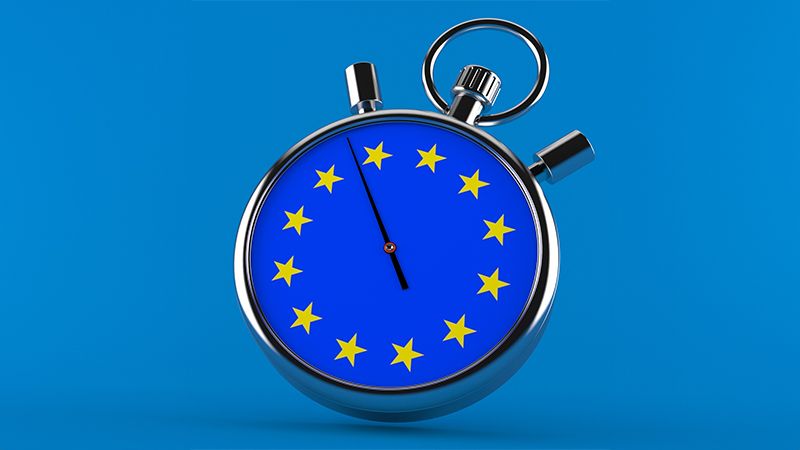Human rights experts have condemned the “deeply disappointing” decision to postpone the implementation of corporate sustainability reporting and due diligence requirements – known as the ‘stop-the-clock’ proposal.
The proposal aims to delay reporting timelines for the EU’s Corporate Sustainability Reporting Directive (CSRD) by two years and grant a one-year extension for the transposition and application of the Corporate Sustainability Due Diligence Directive (CSDDD).
The European Council agreed on the details of the proposal last week (26 March), and the European Parliament approved the Council’s request for urgent procedure yesterday (1 April), with a deciding vote set for 3 April.
Also read: Investors react as Omnibus confirms far-reaching changes to CSRD, CSDDD and Taxonomy
Once approved, the ‘stop-the-clock’ proposal would introduce a two-year delay to the reporting under CSRD. This would affect Wave 2 companies (+250 employees and either a €25m balance sheet or €50m in revenue) and Wave 3 companies (listed SMEs). This means companies originally set to start reporting in 2026 (Wave 2) and 2027 (Wave 3) could have two extra years to prepare, explained Tom Willman, regulatory lead at Clarity AI
“This delay is intended to be an interim measure, offering some temporary relief to companies as the broader substantive proposal travels through the EU institutions. However, the likely direction of travel suggests that most Wave 2 and 3 companies will eventually be removed from CSRD’s scope, making this delay more of a transition step toward full exemption rather than a temporary reprieve.
“For some, this would represent a welcome temporary relief but for others, it may be a source of frustration. Some Wave 1 companies have argued the relief should have applied to them, while many companies in Wave 2 and even Wave 3 have already invested significant time and resources in preparing for CSRD compliance, and now find themselves in a more uncertain position than before.”
‘Undermining credibility of sustainable reporting framework’
Alasdair Docherty, sustainable finance and data analyst, Europe, at the Institute for Energy Economics and Financial Analysis (IEEFA), said that, though there has been a seemingly broad acknowledgement that some sort of delay would be inevitable, the rushed postponement could seriously undermine the credibility of the sustainable reporting framework and punish companies that have already committed resource to meet imminent deadlines.
“Set in the context of wider policy goals, regulatory instability is also clearly at odds with the ramp-up of capital required under the EU’s Clean Industrial Deal. It is worth bearing in mind that a loss of faith in regulatory stability could have a detrimental impact on capital flows that outlasts any period of delay.
“MEPs should remember that the choice is not binary. In line with recommendations made by the Sustainable Finance Advisory Committee, rather than postpone reporting itself, a more balanced approach would be to delay sanctions and enforcement until legal uncertainties are resolved.
“This would allow companies to choose to adhere on a best-efforts basis or wait to report only on a delayed basis while amendments to the European Sustainability Reporting Standards (ESRS) are debated. At the same time, the regulatory framework would regain some semblance of consistency.
“Given the breakneck speeds at which legislative processes are moving, IEEFA strongly suggests this alternative approach be submitted by MEPs for consideration as a matter of urgency and put front and centre of moderate political discourse.”
The Business & Human Rights Resource Centre went further, voicing its deep concern about the proposal. Eniko Horvath of the Resource Centre warned it would blunt Europe’s leadership on the crucial issues of inequality and the climate crisis.
“This stop-the-clock decision is deeply disappointing. It imperils critical legislation that protects people and the planet and builds the long-term competitiveness of European business. Thousands of companies across Europe have called for the legal certainty, level playing field and greater human rights and environmental protections that these Directives provide.
“This decision creates legal uncertainty and blunts European leadership on the key challenges of climate crisis and inequality. More responsible companies and investors will continue with their sustainability reporting despite the changes, widening the gap between leaders and laggards – whose performance this legislation was meant to lift.
“As the EU enters negotiations on the Omnibus proposal, it faces a choice: either listen to corporate leaders and uphold the long-term vision of CSDDD and CSRD, complete with risk-based due diligence beyond Tier 1 and civil liability, or adopt weakened legislation that risks becoming little more than a fig-leaf for corporate impunity on human rights abuses and environmental harm in supply chains.”








